
SERVICES
Deep Cleaning
Our deep cleaning process is powered by a high-force nozzle, meticulously cleaning the inside surfaces of RV tanks while pulling out heavy build up that does not flush out. With four high-angle jets we clean RV tanks faster and more thoroughly than conventional sewer jetter nozzles. This process, with 1500PSI of water, ensures a comprehensive descaling of sludge, paper, struvite, grease, hair, build up and other tough grime, all while causing no damage to the holding tanks or system.
We enter the tanks at the RV's draining outlet, and follow the pipes into the tanks. Once Hydrojetted, we perform back flushes on the tanks until only clear water flushes out . Septic hoses are left connected to catch all waste.
The video above showcases heavy, thick buildup in a 55 gallon grey tank that was in a RV, bought used. The tank was barely draining due to build-up. This build up is common in many RV grey tanks. Annual RV Tank deep cleaning, keeps tanks flushing out correctly and prevents clogging. Black tanks build up similarly, but we will spare you the footage! And who wants build up instead of extra flushes and showers?
RV holding tanks can clog when solidified waste and struvite accumulate inside the tanks and drain lines. Grease, hair and organic buildup, even mushrooms can grow causing significant problems. Look for signs of blockages, such as:
Reduced or absent flow when emptying the tank.
Tanks filling in less days than before.
Strong odours or unusual sounds when flushing or emptying.
Visible signs of debris or buildup inside the tank.
persistent odours inside the vehicle,
Holding tank sensors that fail to operate reliably,
lack of flow when attempting to empty a holding tank, and
Several clogged plumbing fixtures , such as a toilet, shower or sink.
Clog Removal
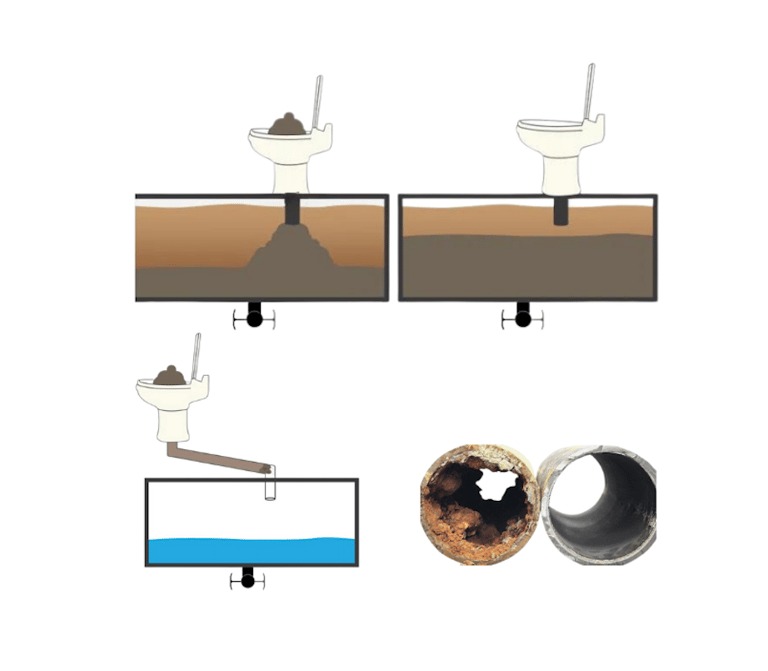

Pyramid plugs most commonly form when the black valve is left open; all the liquid consistently flows out. Solid waste builds up right underneath the toilet line, preventing anything from entering the black tank. This clog also commonly forms in freezing temperatures.
Compacted tanks develop when waste accumulates on the bottom of the tank, preventing anything from flowing out of the discharge line. Compacted clogs can occur if you are not using enough water in your tank, have a leaky discharge valve, or if waste is left sitting in tanks while in storage. The liquids eventually evaporate, and the waste dries out, making it much harder to clean when you're ready to use it again.
Blocked toilet lines develop when toilet paper, solid waste, or a combination of those items clumps inside the toilet pipe and blocks anything from being added to the black tank.
Misreading sensors can fool you into thinking there's a clog when there is not; this does indicate that your tank and sensors are ready for a thorough cleaning.
Struvite is as hard as cement and can come out as rocks and sand. It forms during the off-gassing process. This buildup is one of the top maintenance expenses for treatment facilities. It causes the outlets to narrow, making dumping less efficient, can build around gate valves, and can cover the holding tank sensors.
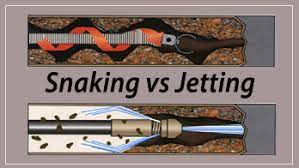

Our service is the best solution for clearing clogs and proper maintenance. Other services and do-it-yourself projects can potentially cause damage, make a mess in the RV or the area you park, and cause a lot of headaches. Sucking out the system has risk of collapsing tanks and still leaves all build-up behind which can mean ongoing issues.
We start by working into the tank with the hydrojetter to ensure the drain pipe is clear. Our Jets break apart the clog while working into the tank. Water and matter drains into the septic as we work. Once the tank is fully cleared, we may have to enter inside to clear the pipe under the toilet and clean the tank again, which will ensure you are starting with like-new tanks! Combined with our advice on tank management, this will likely be the last clog your RV will have.
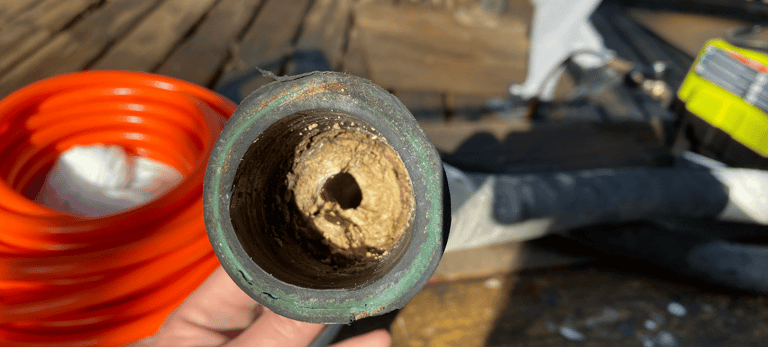

Struvite in boat plumbing
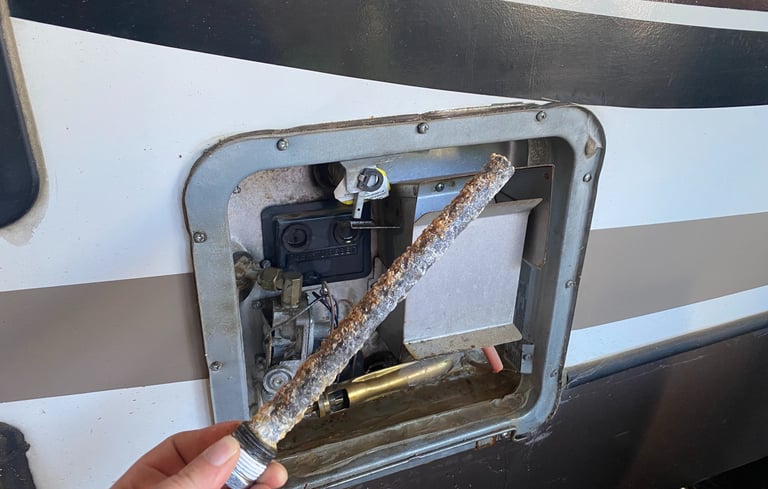

Of the many conveniences RVs provide, a hot shower tops many people’s lists. Having hot water for showering and dishwashing is a luxury we have come to enjoy. So, to ensure hot water is always there when you open the tap, we need to ensure that the anodes are regularly replaced and rinse out rust and calcium accumulation from the water heater. This also aids in keeping hot water from having a sulphide (rotten egg) smell.
Water Heater Maintenance
This video showcases the previous pictured hot water heater's anode and demonstrates how dirty the water can become, even when the anode's life is well above 50%.
Rust, calcium, and other deposits can gradually infiltrate your potable hot water plumbing system. To maintain smooth water flow and prevent trapped debris in your fresh water supply, it's a good habit to rinse all built-in screens in water faucets/shower heads after hot water tanks are cleaned.
We recommend Part Time RVer's flush and service your hot water heater twice a year. For Full Time RVer's - 4 times a year. We will gladly provide this service and show our customers who prefer DIY.
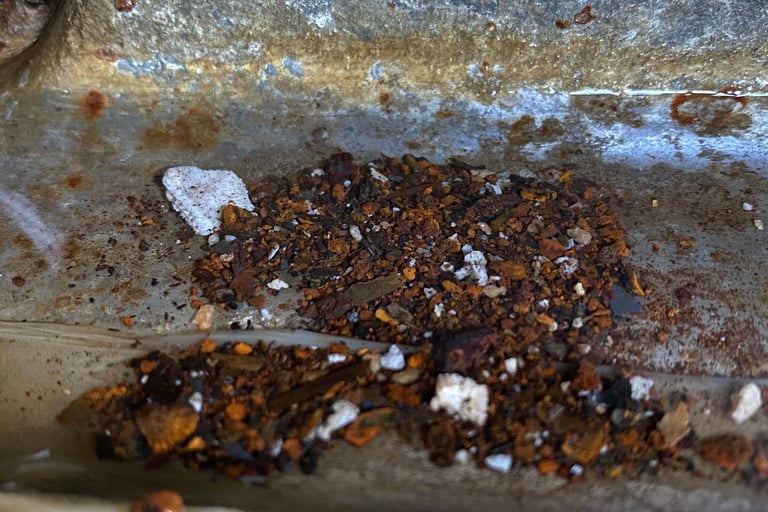

Service Rates:
$75 for travel/mobile service.
Tank Deep Cleaning: $150 each.
All RV's are not made the same. There is slight possibility we can not get into all tanks. This is why we charge by the tank and not the hour. We work hard for results.
Clog Removal: $300 first 2 hours. $125 for each additional hour.
Hot Water Heater Cleaning: $125
Group Rates: Two units together for full tank cleans 10% off. Have more people in the group at same location? Call to discuss!
GST included in prices.


Comox Valley B.C.
Proudly Serving Vancouver Island
